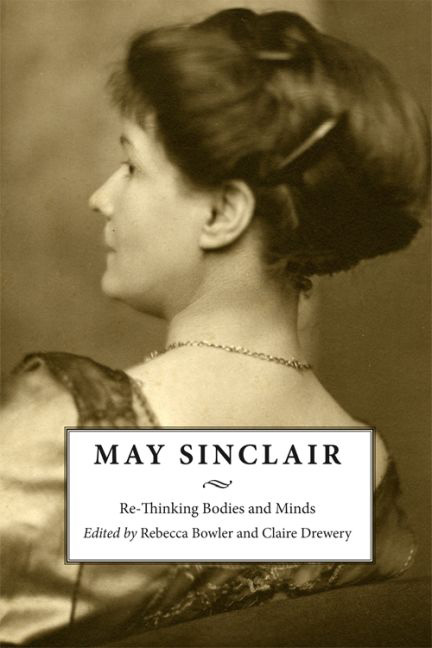Introduction: May Sinclair's Interdisciplinarity
Published online by Cambridge University Press: 26 May 2017
Summary
May Sinclair was a bestselling author of her day, but her versatile literary output, including criticism, philosophy, poetry, psychoanalysis, cultural history and experimental fiction, now frequently falls between the established categories of literary modernism. Her novels gained international praise and huge popularity in her lifetime. At the beginning of the twentieth century she was famous as the writer of The Divine Fire (1904) which was a bestseller in England and America, selling 200,000 copies in the States. All her subsequent novels sold well, and she began to publish essays on class politics as well as philosophy, feminism, war and the new science of psychoanalysis. She became a much-fêted public intellectual. She championed Imagism and other avant-garde literary movements, and her numerous articles on the Brontë sisters are emblematic of the fin-de-siècle repositioning of these writers as cultural icons (she subsequently wrote a biography of the Brontës, and introductions to every volume of the Everyman editions of their novels). She was a novelist and an influential literary historian, but she was much more than this: she was a philosopher, psychologist, biographer, literary critic and essayist.
The interdisciplinarity of Sinclair's output, whilst ensuring her success as an author, eludes straightforward categorisation and this has arguably contributed to the traditional critical neglect of her writing. The reversal of Sinclair's all-but-omission from critical accounts of modernism began with Theophilus Boll's 1959 biography, Miss May Sinclair: Novelist; conceived after a series of meetings between Boll, Sinclair's nephew Harold Sinclair, his wife Muriel, and Sinclair's long-term companion, Florence Bartrop. On a visit to Bartrop at her cottage in Bierton, Boll discovered Sinclair's papers housed within her garage in a collection of cardboard boxes and an iron trunk. The online introduction to the ‘May Sinclair Papers’ housed in the Kisak Center at the University of Pennsylvania details the finding of these materials, which for two weeks were examined, organised and labelled by Boll. These papers, donated by Boll to the Pennsylvania archives as the ‘[g]ift of Harold L. Sinclair and Theophilus Boll, 1959 and 1976’, comprise:
personal and professional correspondence; manuscripts, typescripts, and galleys of published and unpublished novels, short stories, critical reviews, and poetry. Sinclair's literary, philosophical, and psychological writings represent the majority of the collection. Also included is a series of workbooks containing Sinclair's work in the planning stages.
- Type
- Chapter
- Information
- May SinclairRe-Thinking Bodies and Minds, pp. 1 - 18Publisher: Edinburgh University PressPrint publication year: 2017



